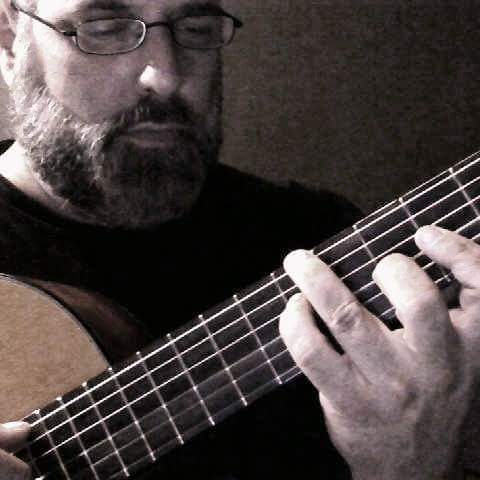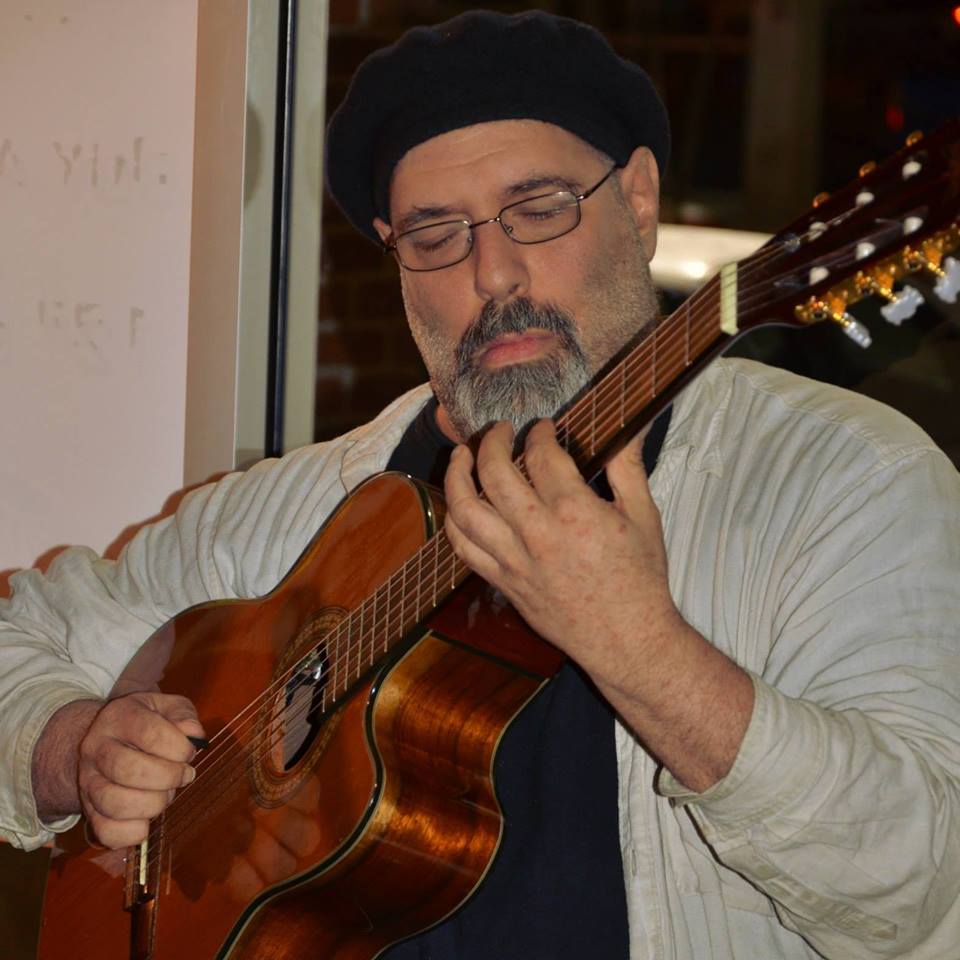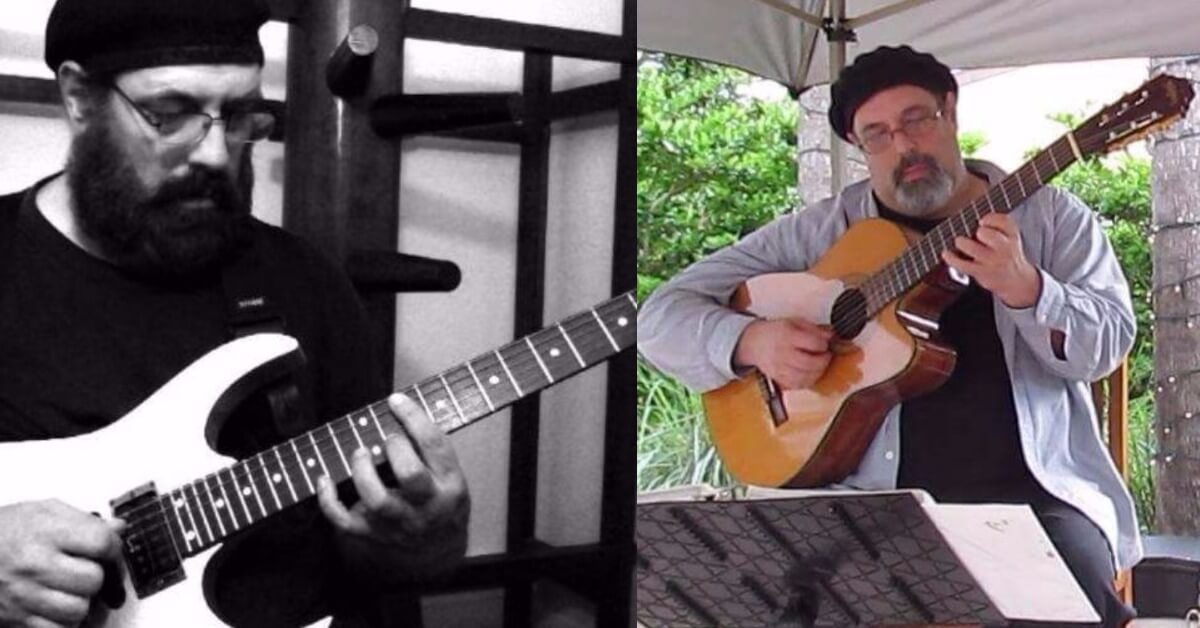‘Music was my first kung fu’ – Dino Rhelos on the path of teaching
Dino Rhelos has taught hundreds, maybe thousands of people. His deep understanding of music is based on an even deeper comprehension of the connection between art, science and philosophy. He’s one of the most experienced and definitely one of the most interesting people we’ve interviewed so far. There’s just too much which can be said about him but we don’t want to spoil anything so we’ll just let the man talk. Enjoy!
Hey Dino! I often like to ask people who are very much involved with music to do the following: describe yourself in a few sentences without mentioning anything about music.
From a young age, I’ve always been very friendly to people, not shy, and genuinely cared about them. Also from a young age, I got interested in martial arts. With my father joining the Greek Orthodox Monastery after my mother’s passing, I followed in his footstep in my own way by being what I call an American monk. I never married or had children. Instead, I dedicated my time and effort to my practices and teaching others what I know.
Now include the music part.
Music is the biggest part of my life. It was my first ‘kung fu’ (time & energy is what the term really means). I started playing piano sometime around 7 or 8 y/o, then picked up the guitar at 10 y/o. Was self-taught until college where I went from being a decent but passionate player to learning to master my instrument, music theory and teaching. College launched my career into full throttle. I went on to become one of the top theory students, and professors sent students to me for tutoring. It’s mathematical, so it made sense to me. After college, it was one musical experience after another. Everything from performing throughout the U.S. and Europe to running sound in studios and live gigs, to composing for hire, to owning my own music and martial art school.
You’ve had playing experience with almost every music genre there is – do you have a favorite one?
As part of being a music theory & composition major, we learned to emulate anything we hear, but I naturally gravitate back to my rock roots. I grew up during the “shred” era in the 80’s, which I feel fortunate for because it was that time that drove me to work on my chops and music theory. Rock gives me the freedom to improvise and express myself in ways that other styles don’t.

Are musicians different from other people? How?
The serious ones are. It’s a certain mental wiring that those types of musicians cannot ignore. At the same time, it can interfere with “normal” relationships because the musical meditative state is where they’re most comfortable, me included.
What’s the key to a great live performance?
Passion and preparation.
What’s the most crucial element of a song that makes it good?
The connectivity of good ideas. Develop a motif that catches people’s attention, then continue to hold their attention through well connected changes throughout the entire piece.
What’s the best guitar you’ve ever played? I’m talking brand and model.
Hands down… Ibanez RG 550 with a Wizard I maple neck.
Have you ever had to record or work on music that you really, really disliked?
Only if I was having trouble with something, and there was a deadline. As for disliking something, that would go against my desire to learn all the music I can, especially as a theory and composition major.
Roughly, how many people do you think you’ve taught music in your life?
Paying students? Probably somewhere in the high hundreds or low thousands. I really don’t know. But teaching overall, it’s what I do every day. Again, it’s part of my path. Everywhere I go people call on me to teach them all types of musical concepts and aspects of the musician’s life.
Which is better and why: teaching individually or to groups?
Individually. Then I can dial into the student’s personality and work to break down the barriers that are holding them back and to instill motivation and discipline.
Dino knows his stuff
What’s the most important thing you want your students to remember?
Learn how to learn.
What did you learn from your students?
How to see the same things in different ways. Not every explanation works for every student, so I would have to figure out other ways of explaining something. The byproduct was I gained a deeper understanding of the material I was teaching.
And from other musicians?
Everything from techniques to theory, to tricks. It’s a free education to hang out with other musicians.
Quadrivium. What is it and how does it relate to music?
Firstly, I would recommend any reader to look it up. To keep it simple, it’s the breakdown of points (arithmetic), points moving in time (music), points that make lines (geometry), and the moving of those lines in time (astronomy… although, today we can use atomic theory). Music is the best expression of a point moving in time.
Dino’s soft side
How do you feel about teaching online?
I think it’s a wonderful idea. Outside of internet latency issues, I think I could very easily communicate what I know online while reaching a broader audience, especially students that are looking for what I have to offer, particularly when it comes to theory and technique.
What do you think of Drooble? Do you believe people can come together online and create real music?
I think it’s a great idea long overdue. I really hope the best for Drooble. The layout is familiar to some other popular social media sites making it relatively easy to acclimate to, but it being geared primarily towards musicians and students makes it unique. I really hope it takes off. Again, we really need something like this.
Name three artists or bands we’ve probably never heard of but should definitely check out.
To be completely honest, I would have to think long and hard about it. Maybe some classical composer like Scriabin, or the fusion group Passport. It’s just like when a band gets together and everyone tries to think of songs to play, and everyone draws a blank.
Give one final, deep, satisfying piece of advice to our readers.
Theory without practice is dead. Practice without theory is long and arduous. They need to be worked on together for optimal success. Also, find a master teacher to study under. Your time is your life. Don’t waste your time.
On a music theory level, learn and know your intervals. All the scales and chords are built with intervals. It is more important to know that you are hearing a #4 than necessarily thinking it’s coming from the Lydian mode. There are clusters of note passages and chords that can’t be identified with typical terminology, and you may limit yourself if you feel that something doesn’t fit into your understanding of theory. This way you can weave music together on its molecular level. If you want an example of this, listen to my piece title, “The Odyssey”.
Thank you for the awesome interview, Dino!
Make sure to check Dino’s profiles on Facebook, YouTube and Soundcloud.




